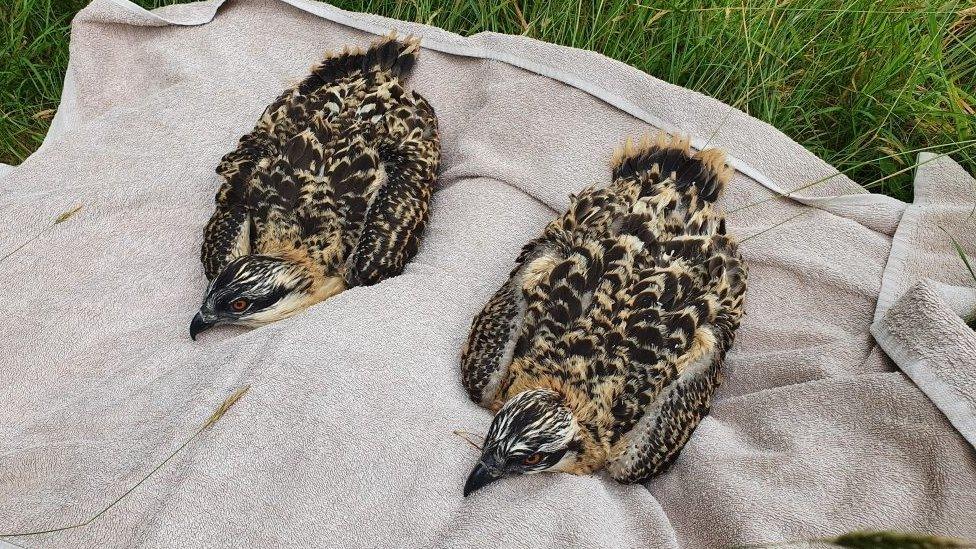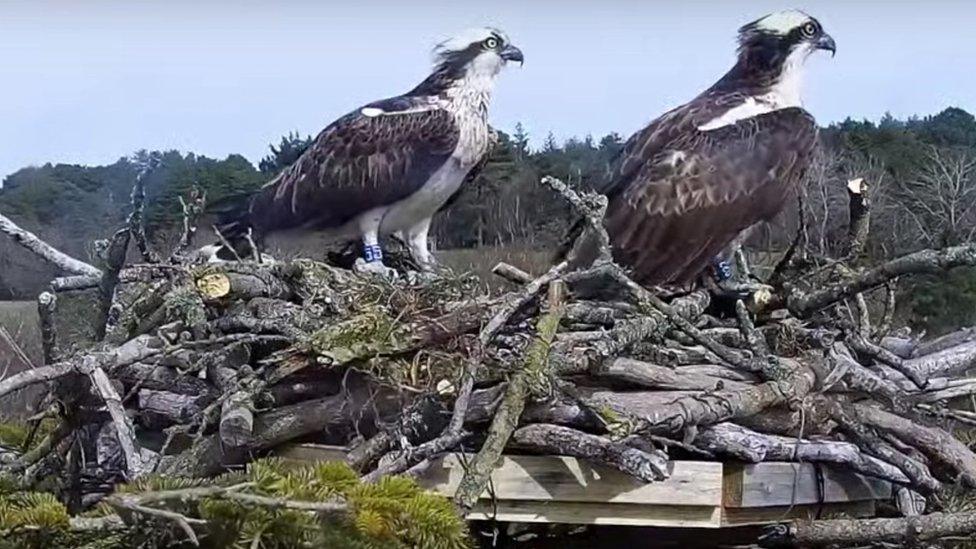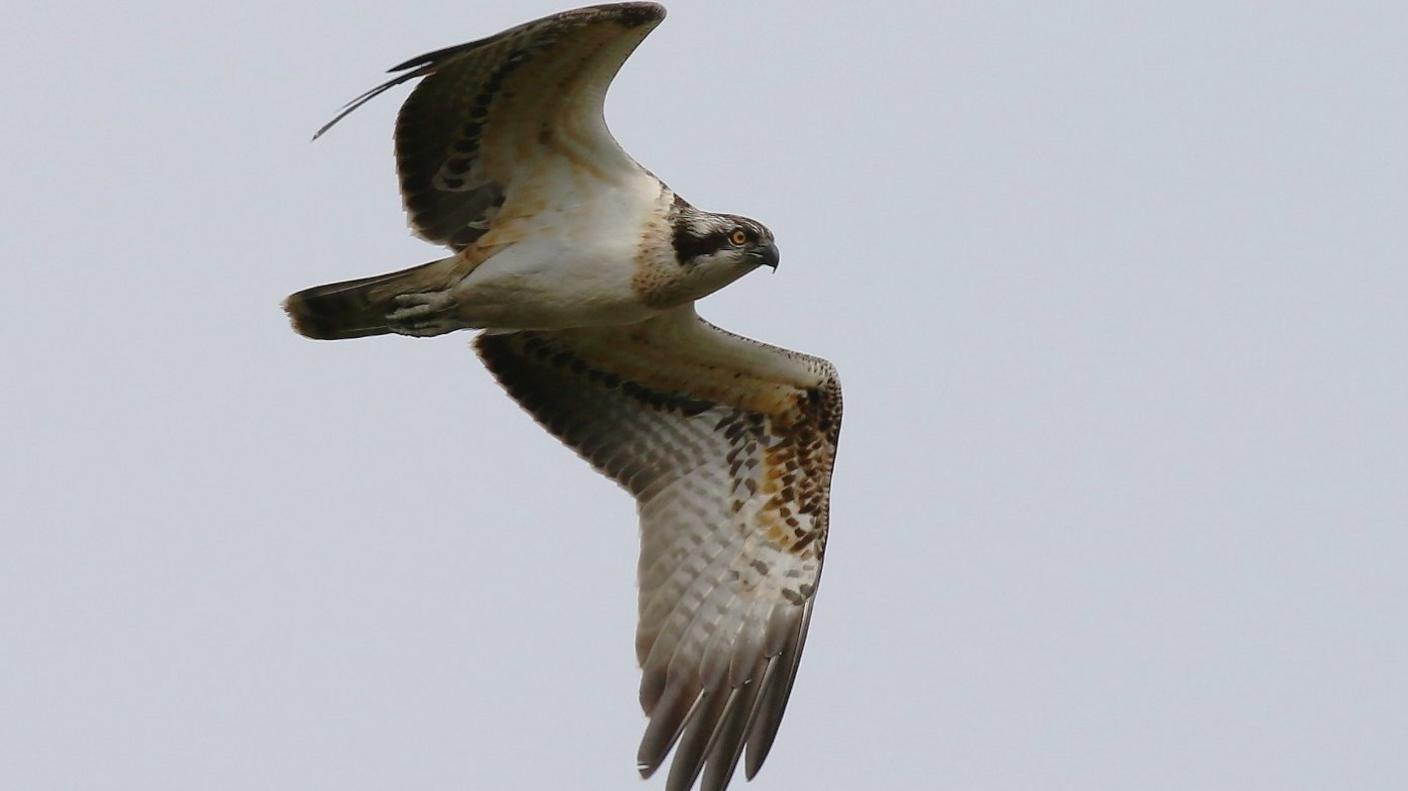Poole Harbour ospreys: First chicks ringed by conservationists
- Published

The chicks were removed from the nest in order to apply the rings
Osprey chicks, believed to be the first to have hatched in southern England in 200 years, have been successfully ringed by conservationists.
The pair hatched in June following a reintroduction programme, which began in Poole Harbour in 2017 with the aim of establishing a breeding population.
They were removed from their nest to be fitted with information tags.
Birds of Poole Harbour said they were in "excellent condition and developing well".
The four-and-a-half-week-old osprey chicks - both thought be female - were each fitted with two rings, with the codes 5H1 and 5H2.
The charity said that despite being young, both were "very substantial in size", weighing in at 1.6kg (3.5lb) and 1.5kg (3.3lb).
A single egg remained in the nest but Birds of Poole Harbour said it was not uncommon for the third egg of a clutch not to hatch, particularly in the case of first time breeders.
During the ringing process, the chicks were carefully removed from the nest for 30 minutes.
The footage of CJ7 feeding a chick was described as a "magical moment"
In 2017, Birds of Poole Harbour and the Roy Dennis Wildlife Foundation began transferring six-week-old chicks from sustainable populations in Scotland.
Because of the risk of spreading Avian Flu, the project has now postponed plans to move more birds from Scotland to Poole Harbour.
"Seeing them successfully fledge and eventually leave on migration to West Africa later this summer is our ultimate goal, and this is where we will continue to focus our efforts for the rest of the summer," it added.
The chicks' parents - CJ7 and 022 - first met last summer, although the male was too young to breed.
When news of an egg in the nest emerged in April, TV naturalist Chris Packham said it was a "sensational" development.
The fish-eating birds of prey historically bred across the British Isles but populations drastically declined in the Middle Ages.

CJ7 (left) and 022 first met last summer

Follow BBC South on Facebook, external, Twitter, external, or Instagram, external. Send your story ideas to south.newsonline@bbc.co.uk, external.
Related topics
- Published3 June 2022

- Published29 April 2022

- Published20 June 2017
